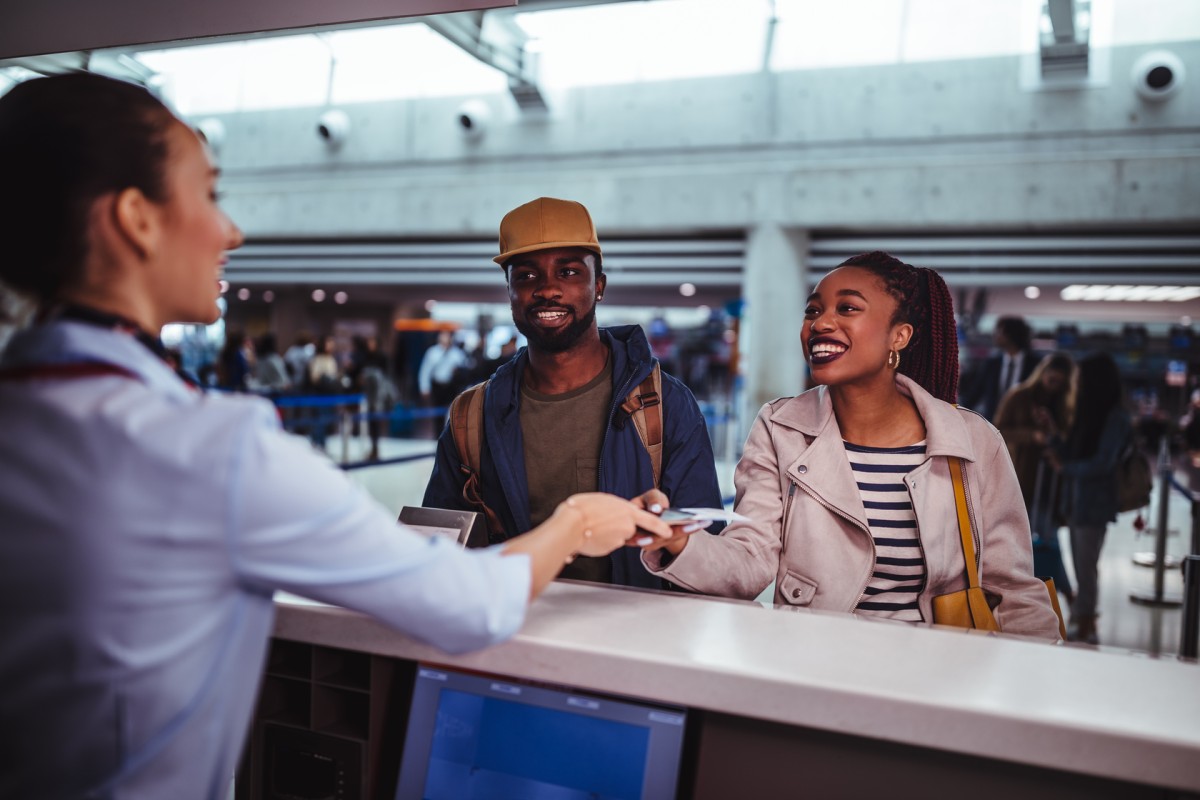As part of your business, your employees may need to travel internationally and to carry out tasks or meet new or existing customers and suppliers. International business travel brings about a whole new set of challenges and responsibilities for business travel managers.
What is international business travel?
International business travel is all travelling your employees must do outside the borders of their employment country.
There are many circumstances in which your business may benefit from international corporate travel. Your business partners or customers may prefer to conduct business in person, and travelling abroad can generate new customers.
However familiar your employees are with business travel, there are several factors involved when international corporate travel is necessary, that you must consider and prepare for.
5 factors to keep in mind for overseas business travel
Compared with domestic travel, international corporate travel is a whole other ball game. We’ve put together a list of factors you have to take into consideration when planning a corporate trip for employees overseas, from cultural differences to the voltage in hotel outlets.
1. Getting there
Book flights early. In order to secure the best price for international travel, try to book the corporate travel as early as possible. We recommend you encourage your travellers to pick their seats. Long haul international flights can affect their health and well-being. Whether travellers prefer the window or aisle seat, preselecting their seat can ensure a better flight so travellers arrive rested and ready for work.
In terms of providing relevant documentation, as a business travel booker, your role is to make sure travellers are prepared with passport, visa and other documentation requirements during their trips.
2. Packing
For international flights, there tend to be strict baggage limits for larger luggage. Checking in and collecting checked baggage can add time to their commute. Further, lost luggage can cause a huge inconvenience for a short business trip. We recommend you advise employees to pack essential items in a carry-on bag for unexpected situations during travel.
Also, there may be different voltage and power outlets in the country your travellers are headed to. Be sure to have employees equipped with the necessary adaptors for their devices, especially work-related laptops, tablets and phones.
Check that your travel policy covers international data bundles for the period your employees are abroad. This can help with navigation and communication, both work-related and personal, and can mitigate risk during an emergency.
It may seem like a no-brainer but have travellers check and pack for the weather before they leave.
You can read more packing tips and discover how to best pack for business travel.
3. Time zones and jet lag
When travelling abroad, it can be hard for the body to adjust to the time difference. In turn, it can be challenging to get quality rest in order to be productive and get things achieved during corporate travel. For first-time travellers, the effects of jet lag are often underestimated.
While there are no set methods to reduce jet lag, we recommend you advise employees to prepare for jet lag and to research for themselves methods they suspect will be effective for them. Some business travellers use exercise to alleviate jet lag and help reset their circadian rhythm. Others choose to ride the wave of jet lag and schedule their meetings for their most optimal time of the day where possible.
4. Getting around
It tends to be a challenge to navigate a new city or country the first time you visit. This is added to when that country speaks another language. We recommend that you advise travellers to download a city map offline before departing so they can be sure to always have access, even without data or Wi-Fi. Printing that map may even be of use in case their devices run out of battery.
We also recommend that you advise travellers to research and download local navigation apps to assist with getting around. Be sure to have a well-communicated travel policy that details for employees which types of transportation they will be reimbursed for.
5. Cultural difference
Before departing, be sure to check for any cultural and political differences between your country and the destination of your corporate travel. It’s important to represent your company professionally and to give some consideration to your responsibility as a “global citizen”. This means being respectful of the cultures and practices of people from every corner of the globe.
In certain countries, this might mean considering many of your traveller’s day-to-day choices, from their attire for leisure time to the manner in which they carry themselves throughout the streets. Advise them to be observant and flexible – if something is unclear, encourage them to ask questions and research the local practices.
If your employees are travelling to a country that speaks a different language, it can be of huge assistance to try to pick up a few local phrases. This could save travellers time in everyday interactions, help them respect locals or could help them navigate an emergency situation.
What risks are associated with business travel abroad?
It’s important that international business travellers pay close attention to their health and well-being while they're on the road. Your travel policy and duty of care should be visible and clearly communicated with employees.
Your company’s travel expense policy should extend for international travel to cover that may differ from domestic business travel:
- Flights – including delays and cancellations
- Accommodation – and associated costs (such as adaptors for chargers)
- Transportation – taxis, car rentals, public transport and other modes of transport
- International data costs and calling – roaming for access to data abroad
- Meals and food while abroad
International business travel insurance can help ease the stress and complications associated with travelling abroad. It can also save you substantial business costs. Read our guide to corporate travel insurance to find out precisely what should be included in your travel insurance policy.
3 international business travel tips
- Research ahead of time – we recommend you encourage your employees to do extensive research ahead of any trip abroad to decrease the chance of risk and to be sure of their own ease and comfort during travel.
- Specify your policy – make sure your travel expense policy and travel insurance policy clearly state any differences in coverage for international travel vs domestic travel.
- Work with a local expert – where possible, work with an expert in the destination or foreign travel to ensure you’ve considered all necessary factors.













